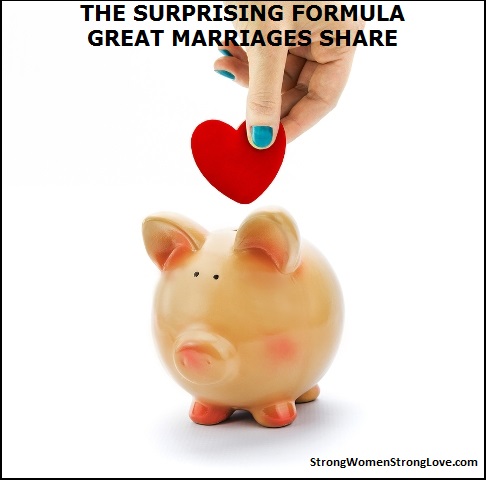Our minds are wonderfully efficient. But that can get us into trouble sometimes.
Here’s what I mean: Your brain can’t possibly process every little piece of information that comes in through your senses. It has to do lots of filtering to keep from getting overloaded.
That filtering can skew your view of the world sometimes. For example, if you’re feeling resentful toward your husband, you may overlook the positive things he does because your brain is looking for information consistent with your negative view of him.
“Outsmarting” your brain so that you notice more positives is vital to your marriage. Researcher John Gottman studies the differences between those he calls the Masters of Marriage (couples who have been married for a long time and still like each other) vs. the Disasters of Marriage (those headed for divorce).
How many positive interactions do you think the Masters have with their spouse for every negative one? Two? Five? Not even close. The Masters of Marriage have 20 — 20! — positive interactions for every negative one. Even when they’re in conflict, their ratio is still five positives for every negative. That’s higher than the normal ratio for the Disasters group whose typical ratio is 0.8 positives for every negative.
What this translates into for the Masters is a relationship that is emotionally warm and loving vs. the icy, tense marriage created when there is too much negativity. Great marriages thrive on positivity.
Are You ‘Overdrawn’?
You can think of the positivity and negativity in your marriage as an emotional bank account, Gottman says. If you make regular deposits of positivity, you establish an “emergency fund” for the difficult times.
If your emotional bank account balance is “in the red,” I encourage you to get very deliberate about filling the coffers. The management guru Peter Drucker once said, “If you can’t measure it, you can’t manage it.” That’s true of a lot of things. Dieters are more successful losing weight if they keep a food diary. And most financial experts suggest using a written budget to help you save money or get out of debt. I recommend trying a similar strategy to improve you marriage.
Try this experiment: For a week, record all the positive and negative interactions between you and your husband. Notice when you make deposits in your relationship’s emotional bank account. These can include:
- An attitude of generosity
- Compliments
- Acts of kindness
- Encouraging words
- Apologizing
Also notice when you withdraw from your emotional bank account with negativity. Withdrawals can include:
- An attitude of entitlement
- Hurtful words
- Rejection
- Callousness about your partner’s needs
When you start keeping track of your interactions, you may be surprised at how much negativity has sneaked into your relationship. Look for ways to add more deposits of positivity. If you are having trouble being genuinely positive toward your husband right now, at least try to reduce your withdrawals from your relationship’s emotional bank account, as that will also improve your bottom line. You can find lots more ideas for increasing positivity and reducing negativity in your marriage in my book Strong Women, Strong Love.


